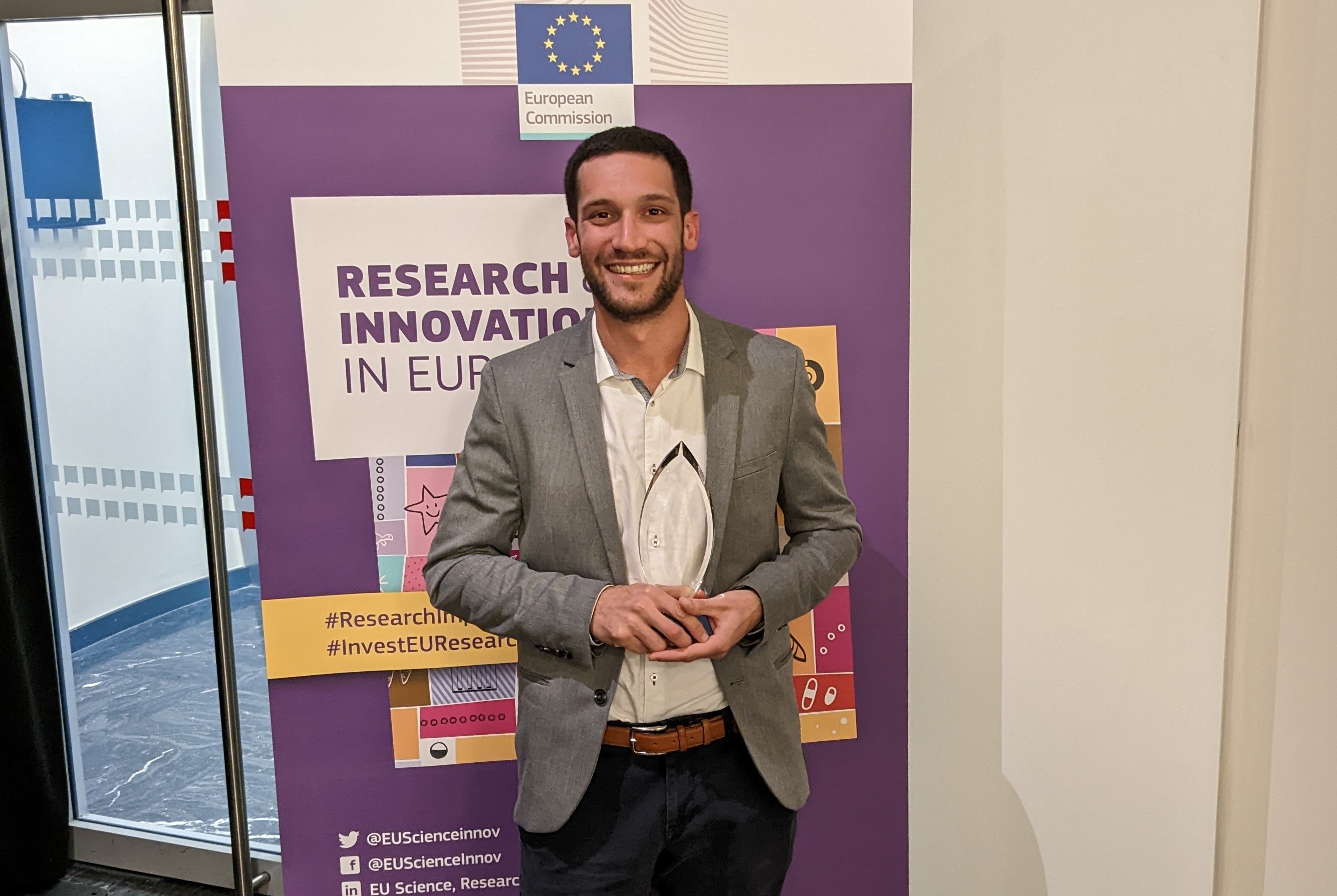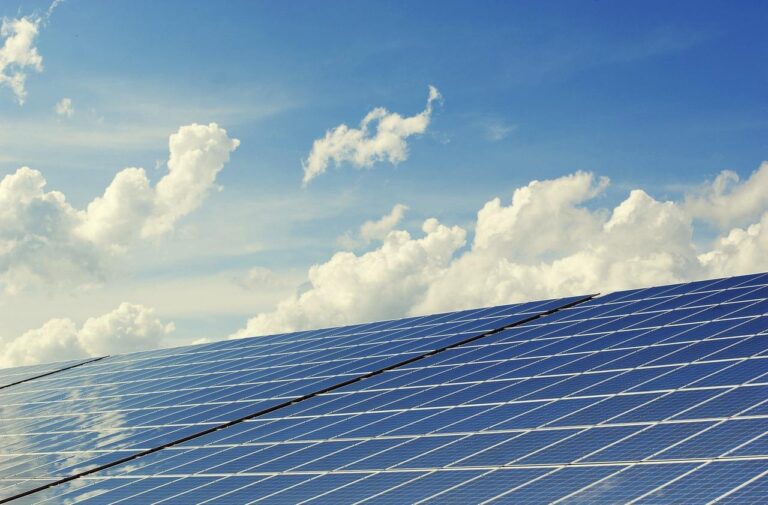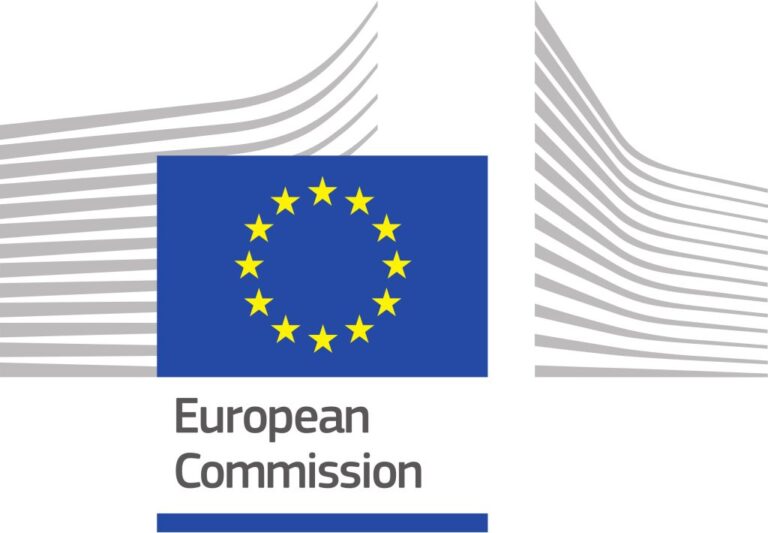For Yohan Parsa, research director at tech start-up ROSI SAS in France, a relatively small Horizon project has made a big difference for the company and for the European Union’s economic ambitions.
ROSI, which recycles raw materials from end-of-life solar panels, has just received the EU’s first “Industry of the Future Award” for technological research supported by the EU’s Horizon programme.
With 700 000 euros from Horizon Europe, the two-year project advanced the company’s goal to become a world leader in the reuse of silicon and silver from photovoltaic (PV) waste. ROSI plans to open a recycling plant in France early next year and expand into Germany, Italy and Spain afterwards.
‘It was the transition from the lab to the factory that became possible with the EU support,’ Parsa said in Brussels on 28 September after accepting the award on behalf of ROSI. ‘We can now move to the industrial scale.’
Fine fit
The project, called Ramp-PV and ending this month, ticks a number of key EU policy boxes.
Amid heightened geopolitical tensions, it promises to enhance Europe’s strategic autonomy by extending the domestic availability of valuable raw materials for industries including solar, electronics and batteries.
In reducing industrial waste, the project also helps the European economy to become more sustainable, or “circular”.
“
It was the transition from the lab to the factory that became possible with the EU support.
In addition, Ramp-PV bolsters the European Green Deal climate goals. While solar panels produce renewable power needed to counter global warming, their silicon and silver ingredients entail energy-intensive production that is itself a source of carbon-dioxide emissions.
Furthermore, Ramp-PV contributes to European workplace-safety goals by developing low-temperature chemical processes used in recovering the raw materials embedded in solar panels. What’s more, the chemicals are mild kinds that, unlike acid for example, pose fewer hazards.
Young champion
‘We need champions of change and innovation for our industry to continue bringing prosperity for all Europeans,’ Mariya Gabriel, European Commissioner for Innovation, Research, Culture, Education and Youth, said when announcing the award. ‘Developing new solutions that save raw materials could not come at a better time.’

Of the two runner-up projects, one focused on digital security for manufacturers, particularly in the aviation, automotive and ship industries. The other centred on robotics in manufacturing and ways to enhance human-robot collaboration.
The Industry of the Future Award recognises EU-funded projects whose results, in the words of the European Commission, ‘make European industry more resilient, sustainable and human-centric.’ To be eligible, a project needs to have started after August 2018.
ROSI, based in Grenoble, was barely in existence then. The company was founded in late 2017 and began the Ramp-PV project in November 2020. It has around 20 employees.
To date, ROSI has been developing the processes and technologies for extracting high-purity materials – copper is another – from photovoltaic waste and reintegrating them into key industries including solar.
Growth chart
By early 2022, the company reached the industrial-equipment test phase and announced a plan to create a factory near Grenoble.
The French plant will recycle 3 000 tonnes a year of solar panels starting in 2023, extracting 90 tonnes of silicon, 30 tonnes of copper and 2.5 tonnes of silver, according to Parsa, who said ROSI’s number of employees would roughly double at this stage.
Within two years, the plant’s recycling capacity for the panels will increase to 10 000 tonnes, he said.
ROSI will integrate recovered silicon back into solar panels while looking for other potential users for this material including semiconductors and batteries, said Parsa. Recovered copper and silver will probably go into industries other than solar, he said.
The company’s expansion plans beyond France will begin in Germany and then extend to Italy and Spain.
‘We are quite advanced in Germany, but it’s not a done deal,’ Parsa said. ‘In all three countries we are looking for partners because we need the help of local players.’
While being coy about the precise timetable for ROSI’s planned ventures outside France, he signalled those – along with the imminent French recycling activity – would have been a more distant prospect without Horizon funding for Ramp-PV.
‘If we had not had the EU support, we would not have reached this point as fast as we did,’ Parsa said. ‘Ramp-PV enabled us to conduct trials on new equipment and accelerated our whole business plan.’
By
This article was originally published in Horizon, the EU Research and Innovation magazine


